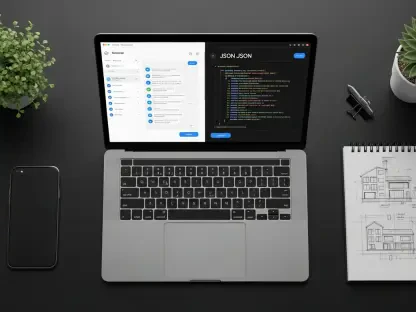After six long years since the last mainline version of Windows shipped, Microsoft has officially released Windows 11, and anyone with a compatible laptop or PC can upgrade to the new version of this OS. Of course, it’s not all milk and honey, and experts are already pointing out some major issues. Here’s almost all you need to know about Windows 11, from its biggest features to the worst early problems.
Windows 11: The New Features You’ll Love
Windows 11 was released to the general public on October 5, complete with a host of feature improvements compared to Windows 10. Major updates include redesigned menus, AI-powered widgets, Android apps integration, Snap groups, improvements to memory management, a new user interface, an updated Microsoft Store, and integration with Teams. Windows 11 also has a brand-new Action Center, splitting Quick Settings, Notifications, and a music controller into separate sections. Furthermore, its design is inspired by Windows 10X, making it easy to navigate using touchpad, mouse, pen or finger.
AI-Powered Widgets
According to Microsoft, the new AI-powered widgets let users look at news, calendar, weather and other items without interrupting their work. The widgets section pops out from the left side of the screen in Windows 11, and users can choose which widgets to enable and where to place them.
Microsoft Teams Integration
Teams Chat is replacing Skype as the default communications app in Windows 11. Teams now lives in the Windows taskbar, and starting a call is now as simple as in FaceTime, the MacOS app.
Improved Menu Behavior
Microsoft improved the behavior of File Explorer’s context menu for Windows 11. Common commands (cut, copy, paste, and delete) are now at the top of the menu and app extensions are grouped together below Shell verbs. The Windows 10 context menu and lesser-used commands are still available through the “show more options” item at the bottom of the menu.
Memory Improvement
Microsoft overhauled the memory management component to provide application windows in the foreground with more CPU and other system resources. Unlike Windows 10, the Sleeping Tabs feature is on by default in Windows 11.
Android Apps on Your PC
Android apps are now built into Windows 11 natively through the new Microsoft Store, a change Windows users have been dreaming about for years. Support for Android apps is not part of the first shipping version of Windows 11: it will come with another release in the coming months.
Fewer Feature Updates
Windows 11 will follow an annual update cadence, meaning it will receive major updates just once a year, unlike Windows 10’s schedule of biannual updates. Microsoft is also tweaking the support lifecycle for the product. Users running Home and Pro SKUs will be supported for 24 months, while Enterprise and Education users will be supported for 36 months.
Windows 11 Problems: Should You Install It Today?
Like any major operating system release, not everything is working properly out of the box. Here are the most important issues reported so far.
Unable to Search in Start Menu
There’s currently an issue with the new Windows 11 Start Menu search bar that prevents it from being typed into. The company acknowledged the problem, stating that opening the Run window will enable you to type into the search bar again.
Poor Wi-Fi Performance
In the last few days, new reports are emerging about some people experiencing poor Wi-Fi performance after upgrading to Windows 11. Microsoft is aware of this issue and will release a Windows 11 cumulative update on October 12 to hopefully fix the problem.
“Compatibility issues have been found between some Intel “Killer” and “SmartByte” networking software and Windows 11. Devices with the affected software might drop User Datagram Protocol (UDP) packets under certain conditions,” according to Microsoft’s status page.
File Explorer Is Holding Users’ RAM Hostage
Users are reporting memory leaks in Windows 11 File Explorer. After one user posted about this issue on the Windows 11 subreddit, lots of people replied they had the same problem. Basically, every time you open a new Windows File Explorer window, the allocated memory continues to accumulate and is not released when you close it. The phenomenon has been experienced by many users, and those who have recently tried to reproduce the bug confirmed it.
Windows Is Killing Game Performance for Some AMD Processors
Windows 11 has an issue with AMD processors, and it could have a substantial performance impact with some games.
“AMD and Microsoft have determined that compatible AMD processors may exhibit reduced performance in certain applications when running Windows® 11 (…) AMD and Microsoft are partnering to resolve these issues with upcoming software updates. This knowledge base article will be updated to include version numbers and how to update when they are available,” according to an AMD support post.
Microsoft is obviously working hard to identify and fix problems as they occur, which is a very good thing, but this also raises a question: should you install Windows 11 today or is it a good idea to wait for a few days or weeks? Well, the answer depends on whether you’re an early adopter—or just plain curious.









